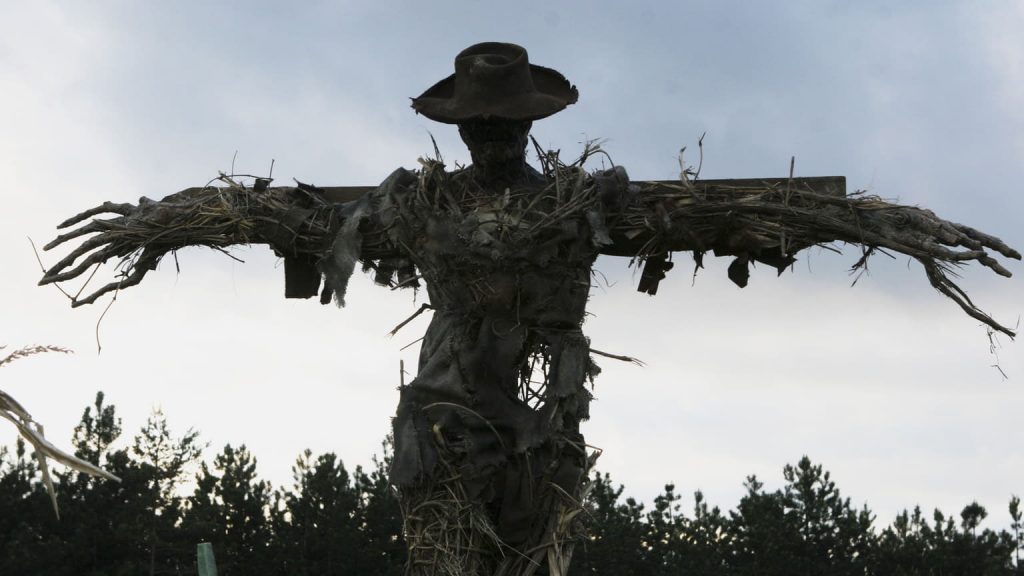
Ah the 80’s. For those of us who lived through those heady times, whether as a child or a teen, we had the prescience to know even back then that it was devoid of significance and profundity. How could it possess anything lofty when the hallmark of stylistic achievement consisted of leg warmers, big hair, and Z Cavariccis. Thankfully, I avoided those faux pas opting to model my style after John Cusack’s “Lloyd Dobler.” Well, truth be told, I was sporting a long trench coat, sweats, and sneaks two years prior to “Say Anything.” And although no longer a nascent effort, my law suit against him back in the day would have given rise to everyone referring to that look as the “Jon Conyers.” Whatever.
My choice in movies back then — if “Say Anything” wasn’t enough foreshadowing – was more off the beaten track and certainly less populist than the testosterone-filled action fare of Stallone or Schwarzenegger. Indeed, as a kid that grew up poor in an affordable housing apartment building, surrounded by hard-core drugs, violence, and overt racism, my tastes always bent more toward social justice.
The auteur of the day that spoke to me was Spike Lee. Most everyone extols the virtue of “Do the Right Thing,” and as a former pizza-delivery guy myself, I have a soft spot for “Mookie.” But for my money, Spike’s often overlooked tale, “School Daze,” was far more powerful. For those that haven’t seen it (and I’m sure that’s 99% of you), it touches upon issues of racism within the African-American community and the conflict between those championing social change and those seeking to maintain social order… all set neatly against the backdrop of fraternity life at a traditionally Black college. Oh yeah, and did I mention it was a musical? Anyway…
The movie featured Morpheus himself, Laurence Fishburne, and within five minutes, I was drawn to his character “Dap,” because like him, I was a somewhat woke, politically conscious student prone to rallying, protesting, and generally shining a light on various injustices. I know, many of you back in the day would have been like, “Snooze-fest!” I get it. I was definitely a mythical creature of sorts. But truthfully, I only understood 20% of what the masses did, and I only gave a shit about 20% of that. At most every opportunity, I zigged when everyone else zagged, in a Robert Frost, “The Road Not Taken” sort of way. It’s been lonely, for sure, but it’s also been a common, comforting companion throughout my life, as has my quest to find an army of 300 to stand by my side — a thought echoed in one of my first blog posts with Sarah Murdock, “The Wind.”
Unlike the masses, I always found purpose in everything… every moment… every action. Indeed, when you grow up actively dodging bullets and muggers and junkies (oh my), you tend to hone your focus on securing the lowest levels of Maslow’s Hierarchy of Needs – i.e., Food, Safety, and Security. You learn to scratch, and claw, and defend everything like a fortress, not just for yourself, but for those you care about. And while violence and other assorted darkness was the nom de plume of my childhood and teen years, I usually found a way to defeat the evil-doers bent on causing me harm with a combination of witty banter, sarcasm and satire, with a dash of a Flash thrown in.
But not always.
That singular perspective on what truly matters has been with me my entire life. It’s what causes me to give short shrift to people seemingly devastated by the prospect of missing a Modern Art Meetup because their Mercedes was in the shop, when I and most of the people I grew up with had to work two jobs just to afford bus fare. It makes me groan when someone complains about a perceived micro-aggression towards their choice in tattoo locations, when I still have scars and unhealed bone breaks from actual aggressions. And I most definitely have little patience for people working through their “mommy and daddy didn’t buy me a pony” issues when I had to take care of a disabled mother after my father died of cancer when I was 18.
I get that not everyone had my singular perspective on life, the universe, and everything. That not everyone had to worry about Food, Safety, and Security as per Maslow’s Hierarchy dictates. But like “Dap’s” character in “School Daze,” I’m incredulous to the willful, self-inflicted blindness that people instill upon themselves when they see those alternative perspectives.
I’m enraged that just a couple of weeks after the worst mass-shooting in this country’s history, there’s just as much outrage over McDonald’s shortage of “Rick & Morty’s Szechuan Sauce” as there is about gun control.
I’m disgusted that more people seem to be interested in the sordid details of the torrent of sexual assaults perpetrated by white male celebrities and politicians, rather than changing the culture that enables those same men in power to put their hands and dicks anywhere they want with nary a thought to the apparently little known concept of “consent.”
And I’m saddened that 40% of this country would rather watch a football game and tweet #STFU, than take 30 seconds to understand why people are kneeling in the first place.
I get that we all need a moment of down time to distract us, recharge us, and offer a modicum of respite. But’s there’s a fine line for fuck’s sake between enjoying an adult beverage with friends after a hard day’s work trying to save the world, and sticking fingers in our ears whilst chanting, “Not Listening… La La La La La.”
I made a decision… back when I was dodging bullets on street corners and fists in darkened hallways… back when I had to shuttle my mother back and forth to medical appointments… back when I had to apportion a 20-pack of KFC nuggets as my lunch for the week. I decided that nothing was going to deter me from getting out of the hell hole I grow up in. And nothing was going to stop me from helping others to get out of their hell hole, however they define it.
That’s why I started working in the nonprofit world all those years ago. And that’s why I’ve been looking for an army of 300 to join me.
Unfortunately, I’m still looking.
So if you’re sitting on your ass right now, fretting about some social injustice du jour but choose to engage solely in a slacktivist button-click kind of way…
If you’re affected by something on a fundamental level, but decide instead to distract yourself with a funny cat video time and time again…
If details of some news-feed horror show bring up some personal post-traumatic stress from your past, but you willfully choose to pour yourself another drink instead of saddling up and putting your big boy and girl pants on to affect change…
Then I offer you the last scene in the movie “School Daze” where – in response to a particularly disgusting example of sexual manipulation and assault and a furtive effort to maintain male-dominated social order– Laurence Fishburne’s “Dap” walks around campus ringing a bell at daybreak repeating the same phrase over and over again…
“Wake up!”
– Jon



 One of the great hallmarks of the nonprofit world is that it is inhabited by a special breed of people… people that for whatever reason, genuinely bleed for others and believe that they can save the world. Indeed, there weren’t too many of those types inhabiting the infamous halls of wall street say circa 2007 or currently haunting the tech-fueled frat houses of companies like Uber. No, the motivators there are, shall we say, a tad bit more selfish, bordering on the manipulative, misanthropic and sociopathic. Do we really doubt the stereotype that some of these bastions of greed would be willing to sacrifice their grandmother on a pyre dedicated to Cthulhu just to make a buck?
One of the great hallmarks of the nonprofit world is that it is inhabited by a special breed of people… people that for whatever reason, genuinely bleed for others and believe that they can save the world. Indeed, there weren’t too many of those types inhabiting the infamous halls of wall street say circa 2007 or currently haunting the tech-fueled frat houses of companies like Uber. No, the motivators there are, shall we say, a tad bit more selfish, bordering on the manipulative, misanthropic and sociopathic. Do we really doubt the stereotype that some of these bastions of greed would be willing to sacrifice their grandmother on a pyre dedicated to Cthulhu just to make a buck?




 Yep, we went there.
Yep, we went there.